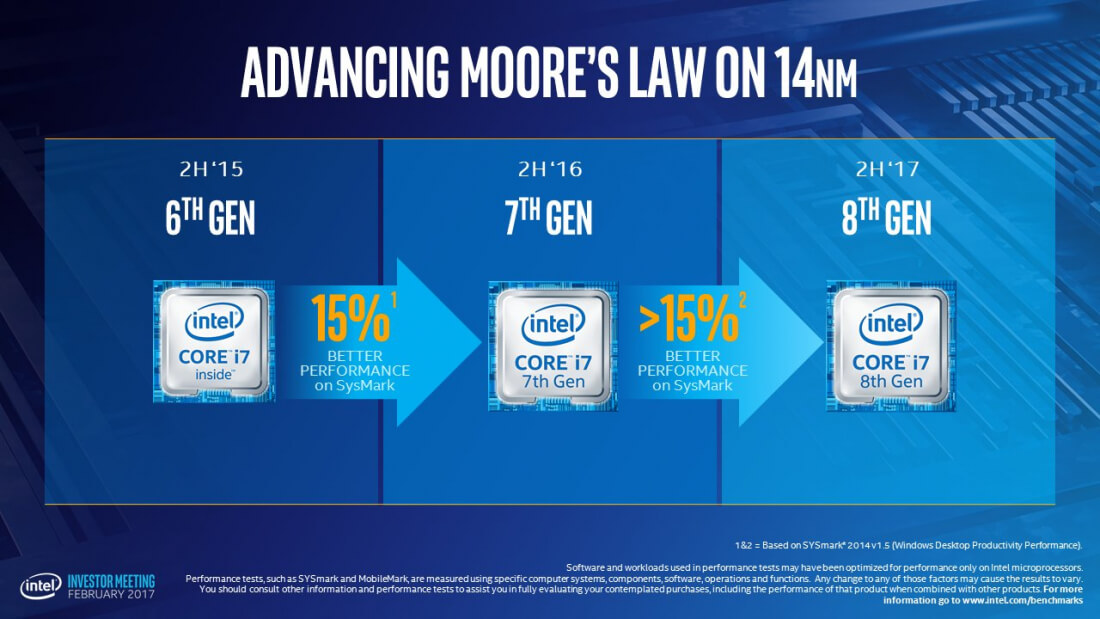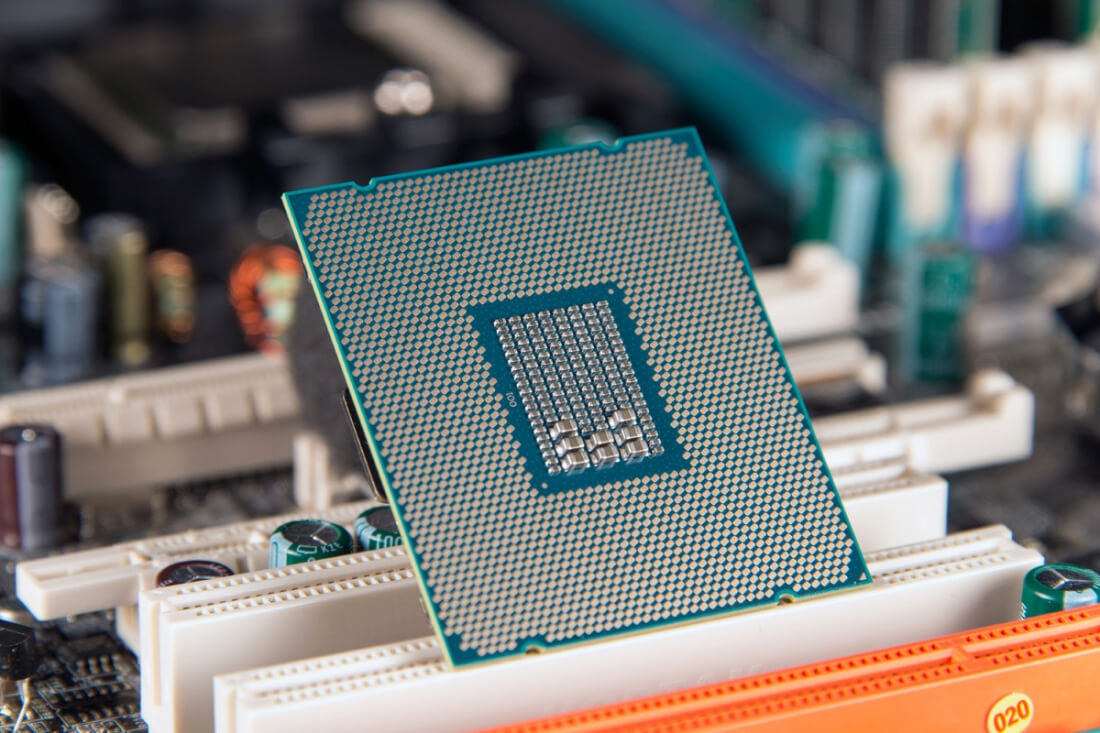Intel confirmed at their annual Investor Day in California that some of their 8th-generation Core processors will remain on a 14nm manufacturing node. This will be the fourth consecutive year that Intel's main processor line will use 14nm technology.
Intel are slowly progressing towards products built at 10nm, but it seems 10nm will not hit high-performance consumer parts first like in previous generations. Instead, Intel are focusing on data center parts "first for next process node", along with ultra-low-power consumer chips. While this news will disappoint PC hardware enthusiasts, the data center is a massive market and money-spinner for Intel, so it makes sense to focus their efforts there.
According to Ashraf Eassa, who attended the Investor Day, Intel's VP and GM of Client and IoT, Dr. Venkata Renduchintala, said that process technology will be "fluid" based on the product segment. As such, it seems as though Intel's 8th-generation processor line will contain a mixture of architectures and nodes.

It is currently believed the 8th-gen Core line will feature both Cannon Lake and Coffee Lake processors. Intel will use Cannon Lake, their 10nm die shrink of Kaby Lake, for ultra-low-power Y-series processors (Core M). Coffee Lake, the fourth line of 14nm processors with further process and architecture optimizations, will form the rest of the 8th-gen Core line-up from U-series ultraportable parts to S-series desktop parts.
Intel expects 8th-generation processors to be upwards of 15 percent faster than Kaby Lake in some situations.
Intel's 8th-generation line-up may end up being quite confusing, especially if a Kaby Lake U-series refresh is also included in the mix. Expect to hear more about Intel's plans closer to launch in the second half of 2017.
